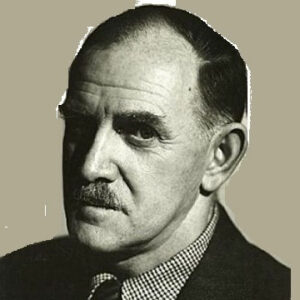Milton Avery was a well-known American modern painter in the twentieth century. Avery was primarily a colorist, and his work focused on color relationships rather than producing the appearance of depth found in traditional Western paintings. Because of his vivid and inventive landscape paintings, Avery was often compared to American Matisse. His use of drawing and color was poetic, aggressive, and imaginative, setting him apart from a more traditional paintings of the time. His work was initially dismissed as too radical because it was too abstract; later, when ‘Abstract Expressionism’ became popular, his work was dismissed as too representational. Avery was a significant modernist who impacted subsequent generations of artists, including Color Field painters like Mark Rothko and Adolph Gottlieb, despite never being identified with any one movement. Milton Avery gained numerous accolades from American art institutions throughout his life as a magnificent painter, graphic designer, and ceramist, but it was after his death that he became truly recognized. He is now regarded as one of the most significant artists in the United States during the twentieth century.
Early Years and Childhood
Milton Avery was born in Altmar, New York, on March 7, 1885. Tanner was his father’s profession. Avery began working at a local factory when he was 16 years old and supported himself through a series of blue-collar jobs. After his brother-in-law died in 1915, he became the family’s only adult male member and was responsible for nine female relatives.
He took art studies at Hartford’s Connecticut League of Art Students and painted in secret for a time while acquiring a conservative art education. He began performing night jobs in 1917 so that he could paint during the day. Until 1924, Avery worked in manufacturing and for an insurance company.
His Private Life
He met Sally Michel, a student at the Art Students League in New York, in 1924 and went to the city to be near her. They tied the knot in 1926. Avery changed his birth year to 1893 at this period, maybe to close the age gap with Sally.
Sally’s salary as an illustrator allowed him to devote his entire life to painting. March Avery, their daughter, was also a painter. Avery was a man who didn’t say much. He used to tease his wife, “Why to talk when you can paint?”
In 1924, Milton Avery relocated to New York. Avery studied painting and drawing at the Art Students League of New York for several years in the late 1920s and early 1930s. When Roy Neuberger discovered his work, he decided to buy over 100 of his paintings and loan them to museums all around the world in order to introduce Avery to the public.
This made the aspiring artist famous. In 1928, Avery had his first solo art exhibition at New York’s Opportunity Gallery, which also featured Mark Rothko, with whom he became close friends. Adolph Gottlieb, Barnett Newman, and Marsden Hartley were among his numerous friends. Avery was often compared to American Matisse because of his inventive and vivid landscape paintings. Despite the f
act that his paintings became increasingly abstract, he continued to paint figure groups, still lives, landscapes, and seascapes. By the mid-1940s, Avery’s work had become distinguished by a reduction of elements and the loss of detail, as well as an emphasis on random colors reminiscent of Matisse.
His work was once regarded as too radical because it was too abstract. His work was disregarded when abstract expressionism became popular because it was too representational. His painting was purchased by The Philips Collection, a museum in Washington, D.C., in 1929.
In 1944, it was also the first museum to grant him a solo museum exhibition. He was inducted into the American Academy of Arts and Sciences as a Fellow in 1963.
Legacy And Death
Milton Avery died on January 3, 1965, in Woodstock, Ulster County, New York, and was buried in the artist cemetery. Sally Avery, Avery’s widow, donated his personal papers to the Archives of American Art, a Smithsonian Institute study facility, after his death.
In 2007, the papers were digitized and made available to researchers through the Milton Avery Papers Online. Avery gained famous after his death and is today regarded as one of the most significant artists in the United States during the twentieth century.
Vermont Hills 1936 Major Works
Pink Sky, 1940, Gaspe
Autumn 1944, self-portrait
The Sea Bridge, 1944
Hillside with Three Cows, 1945
Sheep 1952 Green Sea 1954 White Wave Man and Dog 1950 Maternity 1950 1954
Sea Grasses and the Blue Sea, 1958 Black Sea, 1959 Spring Orchard, 1959
Estimated Net worth
Milton is one of the wealthiest painters and one of the most popular. Milton Avery’s net worth is estimated to be $1.5 million, according to Wikipedia, Forbes, and Business Insider.


